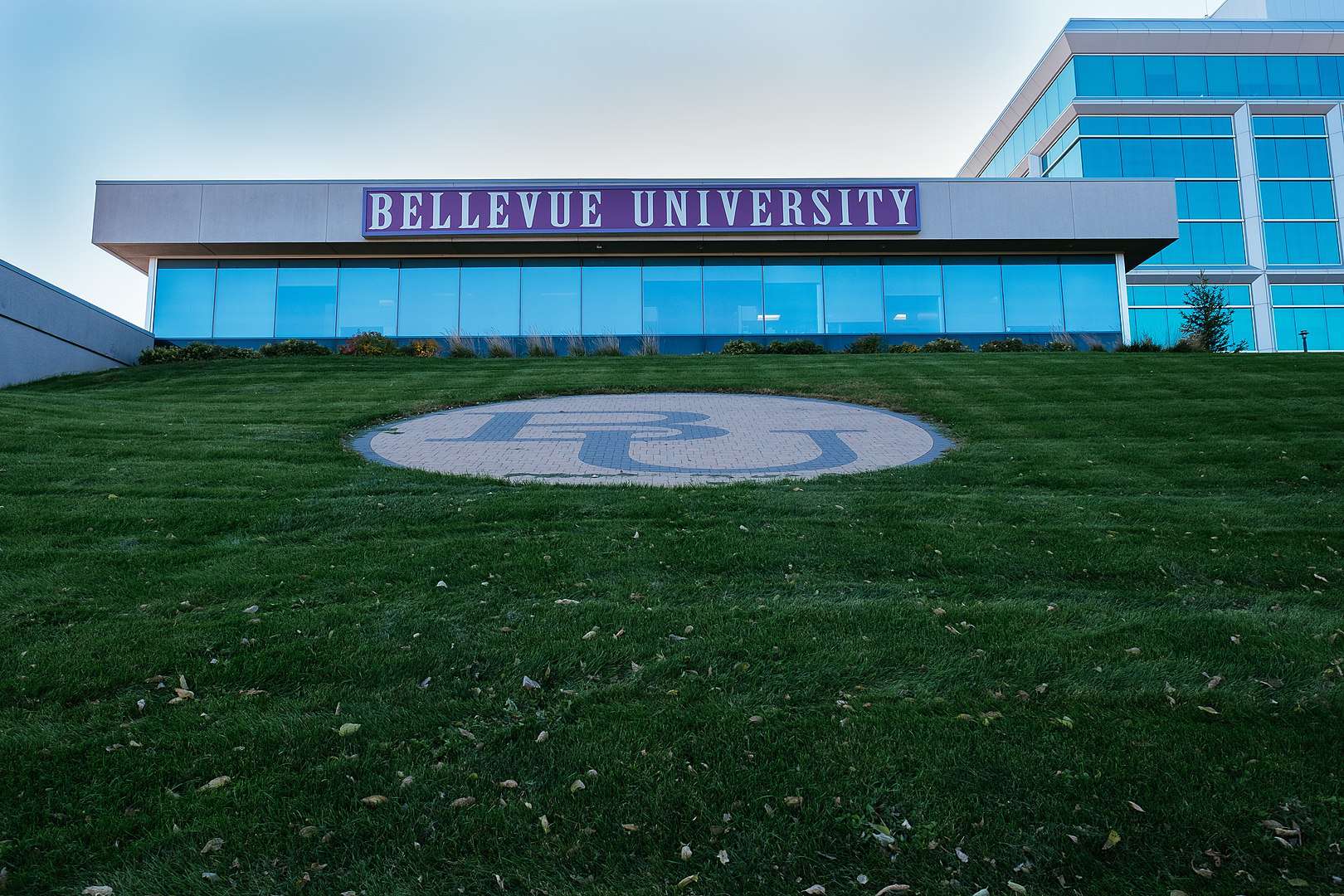Best Online IT Degree Programs of 2023

The information technology field is booming, with the BLS projecting a 12% increase in jobs in the next eight years. This is a great time to get into the best IT training programs because of all the upcoming opportunities and demand for qualified workers.
In short, this means that IT is a highly lucrative field to enter. This line of work is for you if you're interested in network development, software management, and developing sites and databases. It involves creativity, ingenuity, and a whole lot of expertise.
Here at EDsmart, we understand how overwhelming it can be to research endless amounts of seemingly useless information when you're looking for the right path for you. This is why we compiled a list of some of the best online IT degree programs. You don't have to worry about clickbait, cookies, or any other technological distractions as you start down your technological career path.
Online IT Programs That Might Interest You
Learn about start dates, transferring credits, availability of financial aid, and more by contacting the universities below.EDsmart has dug through the data trenches to bring you an easy-to-read, easy-to-digest ranking of the Best Online IT Degree Programs.
Schools are ranked based on four data points in three categories:
- Affordability (financial aid, net price)
- Student Satisfaction (retention rate)
- Academic Quality (4-year graduation rate)
- Student Outcome (20-year net ROI according to Payscale.com)
Each data point is ranked with equal weight. Schools received a weighted overall ranking score for each individual point mentioned above–100 being the highest score possible.
In the case of a tie in scoring, the average net price was the determining factor for which school received the higher rank–the lower the net price, the higher the ranking.
All data was gathered from the National Center for Education Statistics website and Payscale.com.
Best Accredited Online IT Degree Programs 2023
1. University of South Florida
Score: 100
Average Net Price: $8,346
Retention Rate: 92%
Graduation Rate: 72%
Salary After Attending: $50,262
The University of South Florida has gained prestige since it was established in 1956. The Preeminent State Research University's main campus, located in Tampa, hosts almost 50,000 undergraduate and graduate students in total. USF also operates two additional locations: USF Sarasota-Manatee and USF St. Petersburg.
The school offers more than 80 different degree programs including a bachelor's of science in information studies, which runs in a partially online format. Students may also take upper-division courses online. The bachelor of science in information studies degree prepares students for careers related to the knowledge economy--especially when it comes to technology. Students also have the opportunity to focus their studies on info security, health informatics, or data science & analytics. The program places a strong emphasis on IT, production, storage, organization, and theory. Students learn to create, implement, and evaluate approaches and tools that help solve the emerging problems in this rapidly expanding field.
2. The University of West Florida
Score: 97.3
Average Net Price: $7,089
Retention Rate: 83%
Graduation Rate: 52%
Salary After Attending: $43,063
The Southern Association of Colleges and Schools Commission on Colleges accredits The University of West Florida in Pensacola. UWF awards associate's, bachelor's, specialist, and master's degrees, and PhDs. The school supports more than 12,000 students in total and its online campus runs programs in fields of clinical lab sciences, student and community education, health sciences, maritime studies, nursing, and instructional design and technology. Students enrolled in the instructional design and technology program can choose to specialize either in distance learning, technology, leadership, or human performance technology.
USF also offers a specialized IT degree, though it requires students to complete courses on location in Florida. Students study database concepts, programming principles, networks and operating systems, and user support. Security students participate in co-operational programs, internships, and capstone projects to heighten their experience and become viable candidates on the job market. The University of South Florida ultimately aims to cultivate its students' talents and encourage them to pursue their goals.
3. George Mason University
Score: 97.3
Average Net Price: $19,551
Retention Rate: 86%
Graduation Rate: 74%
Salary After Attending: $66,148
George Mason University was initially founded with only 17 students in 1957 as a branch of the University of VIrginia. Today the university serves approximately 35,000 undergraduate and graduate students across its four Virgina campuses and its branch campus in South Korea. The university is best known for its programs in law and economics, but it also offers more than 125 other programs of study.
For example, the school's bachelor of science in information technology degree runs in an entirely online format at the convenience of distance learners. The Computing Accreditation Commission of ABET accredits these online programs. GMU's IT students gain skills related to workplace ethics, professional responsibility and development, and teamwork collaboration. Coursework focuses on the global influences of IT as well as the social and ethical responsibilities required of IT professionals. Many students from GMU's undergraduate IT program go on to study information systems and security, telecom, and other fields related to IT in graduate school.
4. East Carolina University
Score: 96.0
Average Net Price: $16,550
Retention Rate: 83%
Graduation Rate: 67%
Salary After Attending: $47,403
East Carolina University was established in 1907 and currently enrolls around 29,000 students. It maintains nine undergraduate colleges, several professional schools, and even a graduate school. For working students and distance learners, the university's virtual learning system operates in a flexible and convenient format.
ECU students may earn a bachelor of science in information and computer technology, which helps them in their pursuit of cybersecurity, information technology, systems administration, computer networking, or technical management careers. In the online courses, students study the fundamentals of information technology and complete advanced client-server info systems and internetworking curriculum. They also complete internships and capstone projects that better qualify them for successful careers in the IT field.
5. Murray State University
Score: 95.3
Average Net Price: $11,736
Retention Rate: 80%
Graduation Rate: 55%
Salary After Attending: $41,894
Established in 1922 in the state of Kentucky, MSU is a public university that supports approximately 9,500 enrolled students in total. In addition to its extended campuses, Murray State also offers online courses in fields like business administration, logistics and supply chain management, and computer information systems.
The IT degree runs in a hybrid format that incorporates technology with business. MSU collaborates with Kentucky Community and Technical College to offer a degree program in computer information systems. The coursework teaches students to design systems, create software, train new users, and manage various projects. Graduates of Murray State's IT program are qualified in banking, healthcare, education, and other popular career fields. The degree prepares graduates to work as web designers, programmers, analysts, salespeople, e-commerce developers, and computer operations managers. Ultimately, Murray State aims to push its students to achieve academic excellence and find success in the rapidly-expanding field of information technology.
Online IT Programs That Might Interest You
Learn about start dates, transferring credits, availability of financial aid, and more by contacting the universities below.6. Bellevue University
Score: 93.0
Average Net Price: $17,288
Retention Rate: 66%
Graduation Rate: 50%
Salary After Attending: $56,762
Since its founding in 1966, Bellevue University has grown from one campus to four campuses and now serves students everywhere online. The growth brings the school approximately 10,000 students every year. It is now accredited by the Higher Learning Commission. Bellevue students study at both the undergraduate and graduate levels, and most are adult learners.
Bellevue's online information technology programs encompass cybersecurity, management information systems, software and web development, and many other concentrations. Online students have access to web forums that enable them to connect with other students and virtual library resources, keeping a tight-knit student community despite the distance. Bellevue is committed to providing a high-quality educative experience for all of its students.
Further Reading: Most Affordable Colleges Online
7. University of Toledo
Score: 92.8
Average Net Price: $17,312
Retention Rate: 77%
Graduation Rate: 45%
Salary After Attending: $48,039
The University of Toledo in Ohio was first established in 1872. Today, with its more than 23,000 students, it is a relatively large public university that qualifies for tier 2 status due to its expansive research ventures. The university has been providing online degrees for over twenty years. It's now considered one of the best online colleges in Ohio.
Toledo's online programs programs focus in more than fifty different fields of study, offering one of the most prestigious online IT degrees in the nation. Coursework in the IT field teaches students skills in computer network administration, software specialization, information services and support, and programming/software development. All levels of degrees are available here, including certificate programs. The university also offers a scholarship program for its online students. Toledo accepts applicable transfer credits and allows students flexibility in designing their path toward future success.
8. University of the Cumberlands
Score: 92.3
Average Net Price: $13,476
Retention Rate: 67%
Graduation Rate: 60%
Salary After Attending: $41,506
The University of the Cumberlands was founded in 1888 as a private school dedicated to instilling core Christian values within its students and graduates. Now the school hosts more than 13,000 students, on-site and online. According to the U.S. News and World Report, the school ranks #84 among regional universities South. It also offers some of the best virtual programs in the nation.
Cumberlands offers an associate of science, a bachelor's, and a graduate certificate in information technology. These programs equip students with the skills to be successful in their field, specializing in database development, web design, and networking. Coursework is designed to fit around individuals' busy schedules, so students can pursue their education without forgoing other commitments. Careers in database management, software engineering, and business analytics are expected to grow significantly within the coming years, so students who graduate with this degree are sure to find future professional success.
9. Western Kentucky University
Score: 91.8
Average Net Price: $12,522
Retention Rate: 75%
Graduation Rate: 47%
Salary After Attending: $39,268
Western Kentucky University has its main campus in Bowling Green. The school also boasts additional locations in Glasgow, Owensboro, and Elizabethtown. Since it opened in 1906, the university has awarded certificates, bachelor's, and master's degrees. Today, it maintains over 20,000 students in total. WKU's online bachelor's degree programs have been ranked among the best in the nation.
Online coursework span many fields, but one of WKU's most significant branches is its information technology bachelor of science program. This degree requires a minimum of 120 hours for completion, and its core principles teach students efficient information transmission and analysis. Upon graduation, many program grads find work as web and software developers, computer network architects, programmers, support specialists, analysts, and database admins.
10. Georgia Southwestern State University
Score: 91.5
Average Net Price: $11,831
Retention Rate: 67%
Graduation Rate: 44%
Salary After Attending: $42,068
Georgia Southwestern State University operates under the University System of Georgia. The Commission on Colleges of the Southern Association of Colleges and Schools has granted accreditation to this institution. In addition to its vibrant campus life, the school also maintains a tight-knit community of virtual students. Within GSW's four different schools of study, online degrees range anywhere from nursing to criminal justice to business administration.
In particular, the online certificate program in computer information systems functions to accommodate the busiest of schedules. Students have the opportunity to obtain essential computer technology skills by working through a fully comprehensive curriculum and achieving a greater degree of mastery in those skills, working out of a place of preference rather than necessity. Holding this certificate allows students to pursue a master of science degree in computer science and then go on to build successful information technology careers.
11. Franklin University
Score: 91.0
Average Net Price: $7,201
Retention Rate: 21%
Graduation Rate: 36%
Salary After Attending: $51,859
Franklin University has been administering post-secondary education since its founding in 1902. The institution is dedicated to the advancement of adult learners, designing its degree programs in a way that is most convenient for individuals with responsibilities and commitments outside of school. According to Niche.com, Franklin gets an A- college location in Ohio, but online learners have the benefit of carrying their Franklin education with them wherever they go.
Franklin's virtual programs grant associate's, bachelor's of science, and master's degrees in information systems and information technology, along with a variety of other technological fields. These programs equip adult students with the skills necessary to change career paths and become successful in a new field of specialty. For example, the bachelor of science degree teaches skills in database administration and infrastructure analysis. This skill set is invaluable to any number of businesses and companies in the corporate world. All in all, the information technology degree students earn from Franklin ensures their lifelong security and unprecedented levels of success.
12. Wilmington University
Score: 91.0
Average Net Price: $15,186
Retention Rate: 56%
Graduation Rate: 45%
Salary After Attending: $48,187
Wilmington University was established in 1968 as a private research institution situated in New Castle, Delaware. The school earns accreditation from the Middle States Commission on Higher Education. It also maintains multiple campuses in Delaware, New Jersey, and Maryland. Wilmington offers more than ninety programs across its seven schools of study, but its College of Technology, in particular, is one of the most renowned.
Wilmington students can earn an online master of science degree in cybersecurity or information systems technologies, and graduate students within the tech field enjoy Wilmington's specially-designed curriculum. Through the curriculum, students develop skills in critical thinking, info literacy, ethics, and developing techniques for technical research and business. Under the info systems technology degree, students learn to manage and organize business responsibilities and discover technological solutions to real-world problems. Specialties under this degree include management info systems, info assurance, technology project management, and web design. Wilmington provides students with a variety of career services, including internships, alumni networking opportunities, job training, resume assistance, and interview training. Ultimately, Wilmington graduates are some of the most well-prepared for handling their careers and working toward future success.
13. Columbus State University
Score: 90.8
Average Net Price: $12,385
Retention Rate: 74%
Graduation Rate: 42%
Salary After Attending: $41,096
Columbus, Georgia is home to Columbus State University. This is where Its main campus began in 1958. This school is a one of the smaller 4-year public institutions on our list. Today, the school operates two additional satellite campuses in RiverPark and Fort Benning, supporting a total of approximately 7,300 students. As an institution, it prioritizes non-traditional students and the needs of distance learners, offering dozens of online bachelor’s, master’s, and certificate programs from which students can choose.
Students from India, South Korea, and many other foreign countries study at Columbus State through the virtual medium. It offers a bachelor of science in information technology, and online students often consider graduate programs in fields like cybersecurity or software development. Columbus State also awards a certificate in computer science to students aiming for a faster route to career success. Not all online programs are available to students who live outside of Georgia. Prospective students should contact the university to inquire about program availability. Overall, CSU is the perfect option for students with obligations outside of school, as well as those living at a great distance from other forms of opportunity.
14. Saint Leo University
Score: 89.3
Average Net Price: $18,445
Retention Rate: 66%
Graduation Rate: 44%
Salary After Attending: $46,070
Saint Leo University is a private institution that works in affiliation directly with the Catholic Church, serving approximately 16,000 students in total--the majority of which are virtual learners. The school's main campus is located in Florida, but the university also maintains more than forty joint satellite education centers. In 1889, SLU began as one of the first Roman Catholic colleges in the state of Florida. St. Leo was also among the first to enroll students in distance learning programs. The university is now a popular choice for veterans, military personnel, and their families.
Students have access to a variety of online degree programs, but the school's IT degrees rank among the best in the country. SLU offers associate's degrees in information technology and cybersecurity. Courses taken for these degrees teach skills in software engineering, computer science, and computer information systems. Graduate-level programs are available in both software engineering and cybersecurity, as well. Saint Leo is committed to opening up the doors of the future for all of its students by providing them with the education and skills they need to build successful careers.
15. Dakota State University
Score: 89.0
Average Net Price: $18,630
Retention Rate: 69%
Graduation Rate: 40%
Salary After Attending: $44,019
At its 1881 founding, Dakota State University was to be a teacher's training school. Since then, it has become a small, public university that supports approximately 3,300 students. It has expanded to offer dozens of programs and branches into four specialized schools of study:
The College of Education,
The College of Arts and Sciences,
The College of Business and Info Systems,
The Beacom College of Computer and Cyber Sciences.
The Higher Learning Commission accredits DSU, and rates it a top-tier school for its information assurance education research and cyber operations. Students may earn a wide variety of technology-related degrees entirely online, and may even compete for the CyberCorps scholarship, which is supplied by the National Science Foundation. Business technology, computer info systems, computer science, cyber leadership and intelligence, cyber operations, cybersecurity, data analytics, and digital humanities are among the top online degree programs and certificate programs within the realm of technology at DSU. The university even offers online doctoral-level degrees in cyber operations and information systems.
16. Liberty University
Score: 88.3
Average Net Price: $29,382
Retention Rate: 81%
Graduation Rate: 34%
Salary After Attending: $42,394
Liberty University is one of the America's largest non-profit schools. Over 90,000 students attend Liberty from all over the world. It operates in affiliation with the Evangelical Christian church and offers monthly tuition payment plans and scholarship opportunities to many students. The school supports over 600 programs at the associate's, bachelor's, master's, and doctoral levels, and its virtual education programs are some of the best in the country.
In particular, students interested in computer science have to access an online IT degree program that's been ranked highly in the nation. The online bachelor of science in information technology, which has a standard completion time of just three and a half years, is part of Liberty's information technology program. Students who pursue this degree can specialize in multiple different areas, such as data networking and security, application and database development, game design, or even web and mobile programming. These skills put Liberty students at the top of the job market post-graduation, ensuring their future success and the freedom to choose their careers.
17. University of Maryland-University College
Score: 88.0
Average Net Price: $15,395
Retention Rate: 53%
Graduation Rate: 28%
Salary After Attending: $55,598
The University of Maryland—University College is the U of M's official online global campus, renamed the University of Maryland Global Campus in 2019. While UMGC focuses on online education, the college also maintains several schools around the Baltimore area and even has international joint locations in Asia, Europe, and the Middle East. The Middle States Commission on Higher Education qualifies UMGC to award bachelor's and graduate degrees, and the school currently enrolls approximately 90,000 students, all of whom may choose from over one hundred different programs of study.
The university offers more than ninety online programs, including several computer science degrees. Students can pursue a bachelor's degree in IT & computer service, cybersecurity, and even data analytics. These programs equip students with vital skills in web design, programming, and project management. UMGC students graduate with real-world experience that propels them toward future career success.
18. National University
Score: 87.8
Average Net Price: $20,722
Retention Rate: 53%
Graduation Rate: 34%
Salary After Attending: $62,885
Since its 1971 founding, National University has dedicated itself to the needs of adult students and distance learners from all walks of life. It hosts weeknight classes, some Saturday classes, and an active community of online students. In total, National supports approximately 24,000 students across its campuses in California and Nevada, as well as its online system. The university earns accreditation from the Western Association of Schools and Colleges.
The school currently has more than seventy-five fully online degree and certificate program options, and, via National's College of Professional Studies, students can work toward specialized degrees in science and technology. National University has one of the best online IT degree programs in the nation. It offers Bachelor of Science Degrees in:
Computer Science
Cybersecurity
Information Systems
IT management
Students can also earn a master of science in computer or data sciences, cybersecurity, or information assurance. To encourage student success, National University hosts a Graduation and Retention Council in place to help remove education barriers and push students toward academic excellence, regardless of distance.
19. Davenport University
Score: 87.3
Average Net Price: $18,264
Retention Rate: 77%
Graduation Rate: 33%
Salary After Attending: $38,868
Davenport University began in 1866 in Grand Rapids, Michigan. Today, most of the school's 7,000 students study technology, business, or health service. The university branches into five schools of study and offer more than fifty different degrees and certificate programs. Davenport is accredited by the Higher Learning Commission to award everything from certificates up to master's degrees.
Davenport's College of Technology offers bachelor's degrees in technology project management, computer science, and cyber defense. Davenport's online graduate programs specializations are:
Technology Management
Data Analytics
Computer Science
Info Assurance
Cybersecurity
The master of science in technology program is an interdisciplinary program that allows students to study management strategies, project management, info systems, risk mitigation, quality management, and business continuity. Ultimately, these skills are the most useful to Davenport graduates as they strive for success and achieve their career goals.
20. Keiser University
Score: 87.3
Average Net Price: $36,084
Retention Rate: 68%
Graduation Rate: 54%
Salary After Attending: $36,284
Keiser University is a private non-profit school in Fort Lauderdale. The university earns its accreditation from the Commission on Colleges of the Southern Association of Colleges and Schools and maintains multiple campuses in Florida, as well as a virtual e-campus. Keiser offers a variety of programs in business, healthcare, education, criminal justice, sports management, and even the culinary arts.
The school's information technology courses, in particular, are some of the most comprehensive that the online system has to offer. Students who earn their associate's in information technology then have the option to seek bachelor's degrees in applied engineering, cyber forensics, information security, and technology management. The school set it up this way to help students participate in hands-on, real-world experience before they enter their careers. Most often, students begin at Keiser either to continue their education or start a new career path.
21. The University of Maine at Augusta
Score: 86.5
Average Net Price: $10,811
Retention Rate: 61%
Graduation Rate: 30%
Salary After Attending: $34,202
The University of Maine-Augusta has been committed to providing great education to students since it began in 1965. That is why, today, its online degree programs offer fully comprehensive curricula that fit any schedule. According to the U.S. News and World Report, UMA's virtual system ranks among the best online bachelor's programs in the country, and Niche.com places them among the most conservative colleges in America.
UMA's virtual computer information systems degree is at the forefront of academic achievement. With such a rapidly expanding job market, students who pursue this degree gain the greatest chance at a lucrative future career. There are associate's, bachelor's, and post-baccalaureate credentials available within the program, and participating students acquire skills in database design, networking and security, and many other specialties through the coursework. Students also have the opportunity to complete internships, work with real-world professionals, and effectively network themselves onto the job market.
22. Limestone College
Score: 86.5
Average Net Price: $25,160
Retention Rate: 65%
Graduation Rate: 47%
Salary After Attending: $39,684
Limestone College has dedicated itself to the academic advancement of its students since it opened in 1845. This four-year school promotes Christian values. This world view holds up standards of excellence for its students that sets it apart from other liberal arts colleges. Its online and evening classes are among the best in the country.
Limestone grants associate's degrees in computer science information technology and computer science programming. These degrees are offered through the virtual system--one that enables students to complete their coursework through a convenient and comprehensive medium. Through the required courses, students gain skills in microcomputer applications, web page development, and office application programming. These courses ensure that students will progress into the job market with a wide range of valuable and beneficial skills to help them succeed in their future.
23. Baker College
Score: 83.8
Average Net Price: $12,575
Retention Rate: 55%
Graduation Rate: 22%
Salary After Attending: $32,217
Baker College maintains eight different campuses in Michigan’s Lower Peninsula. The school offers over 150 programs designed to help graduates begin careers in several various fields. Baker offers courses in education, human services, healthcare, and technology. Students may complete their career training and go on to work in education, nursing, architecture, computer technology, or interior design.
Baker focuses on providing a flexible plan of study for each student, and its online bachelor of science in computer science allows participants to focus on one of three specialties: database technology, computer information systems, or mobile application software. Many students who graduate with a bachelor’s degree in computer science go on to work in internet communications, software development, or database administration. The degree teaches skills in information systems and troubleshooting. The bachelor’s in IT and security trains students to become general specialists in the areas of networking, operating systems concepts, network security, and components. Ultimately, Baker University fosters the growth of each student as an individual, enabling them to pursue their career goals with a clear path to success.
24. Hodges University
Score: 81.0
Average Net Price: $21,145
Retention Rate: 48%
Graduation Rate: 32%
Salary After Attending: $34,189
Hodges University was founded in 1990 on the idea that individuals should enter into the professional, personal, and corporate spheres with the skills necessary to succeed in those regards. Since then, the private, coeducational institution has reached its influence across the globe, extending to multiple campus locations and even managing a top-of-the-line virtual learning system.
The school's online computer degree programs award associate's and bachelor's degrees, as well as graduate certificates in the realm of computer information technology. These programs equip students with skills in cybersecurity, networking, software development, and many others. With skills like this, IT majors have no trouble finding long-term careers shortly after graduating. Ultimately, Hodges aims to promote academic excellence and professionalism among its students, ensuring their success as they pursue their future careers.
Additional References
https://www.usf.edu/innovative-education/programs/online-programs/index.aspx
https://masononline.gmu.edu/
https://www.murraystate.edu/academics/CollegesDepartments/CollegeOfBusiness/Programs/OnlineBusiness/index.aspx














